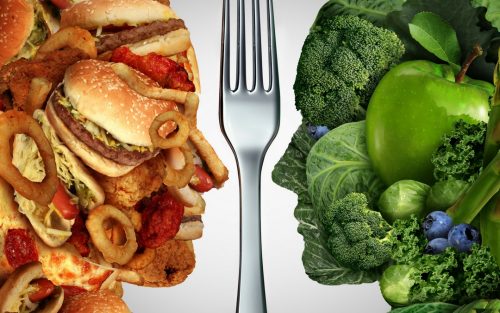
by Feeling Great | Mental Wellbeing
Mental Health Holistic Approach – 5 Things You Should Promise Yourself NOT To Do This Year
As the new year begins with lightning speed your mind fills with goals, aspirations, and plans — all designed to spur change and improve upon the person you were in the previous year.
A lesson well learned is to make sure you do all the above in a way that really honours you. So here are things you need to promise NOT to do this year.
Life is a journey, not a destination.” – Ralph Waldo Emerson
5 Mental Health Holistic Approach (Not to Do this Year)
1. I will NOT put unrealistic demands on myself.
This includes any type of rigid schedule, goals set for the purpose of pleasing anyone other than myself or harsh lifestyle or character modifications of any type. Remembering that we thrive in a flexible, creative environment and even if someone else succeeds in other ways, those are not my ways. We will instead strive for attainable and healthy changes that are manageable and designed to truly improve my life in my own unique way.
2. I will NOT be my own worst critic.
This year, ease up on your own opinion of yourself. Give myself a break. Do not beat yourself up for past mistakes or perceived current shortcomings. Do not compare myself to anyone else because you are uniquely you.
3. I will NOT treat myself with any less love and kindness than I would show to anyone else.
We can be very quick to forgive and typically strive to see the best in others. However, that generosity of spirit is often lost when we review our own life and actions. With the “You can do better” mantra. This year, work towards recognizing the wonderful things you bring to the table. Celebrate your contributions to the world and speak to myself with kindness when you fall short of my self-imposed expectations — just as you would do for my friends and family members.
4. I will NOT focus on negative thoughts.
Every day we are bombarded with news stories that could make the most steadfast optimist cringe. It’s easy to get caught up in a cycle of fear and negativity. But we can be a positive influence in the lives of others. We can radiate love and kindness and positivity designed to touch the hearts of those we encounter. By doing so, we just might make the world a slightly better place — and that’s enough.
5. I will NOT forget to have fun.
In a society where terms like success and accomplishment are used to identify someone’s worth, it’s easy to get caught up in a dust storm of busy-ness. It’s as if society has grown to believe that only by being constantly busy can we prove ourselves to be worthy, accomplished, successful.
Well, I’m going to discard that belief this year and work toward making space for the things I love. Striving to approach the day with a light heart and a good humour. Sure, you still have to work and earn money, but work should not define or control you.
Final Thoughts
This may be a hefty list to tackle all at once. I’ll add that do NOT expect miracles but allow time and practice to guide you to these goals. View it as a roadmap for a gentle, growth-centred journey to a happier you. So have an amazing year!
Here’s another information about holistic approach! The Holistic Approach to a Healthy Lifestyle and you can also read the Mood & Gut Connection and if you find this helpful, we love to hear from you. Book now for a healthy year and have more energy for the rest of the year!

by Feeling Great | Mental Wellbeing
7 Mind-Body Practices to Eliminate Stress
Understanding and Eliminate Stress in Everyday Life
If you listen to conversations around you, stress is a common theme. People feel overwhelmed by work, finances, relationships, and global issues. The impact of chronic stress is serious, leading to health problems like anxiety, heart disease, and fatigue.
But stress isn’t just about external situations. It’s your response to challenges that creates tension. A traffic jam, an overdue bill, or a disagreement isn’t the real cause—it’s the way your mind processes the event that triggers stress.
The good news? You can change your response and regain control. These seven mind-body practices can help you reduce stress, improve well-being, and find balance.
7 Mind-Body Practices to Eliminate Stress
1) Meditate for Instant Calm
Meditation is a simple yet powerful way to quiet the mind and relax the body. Regular practice reduces stress hormones, lowers blood pressure, and promotes emotional balance.
How Meditation Works
Your mind constantly moves from one thought to another. Meditation interrupts this cycle, creating a moment of stillness. A great way to do this is by using a mantra—a simple sound like Om or Hum—to bring awareness to the present. Studies show that humming activates the vagus nerve, which calms the nervous system.
With consistent meditation, your mind releases negative patterns, and your body learns to relax deeply.
2) Address Stressful Situations Directly
While you can’t control everything, some stressors have solutions. If an issue can be resolved, take action. Talk to friends, seek advice, or get professional help if needed.
The Power of Communication
Many stressful situations come from misunderstandings. Learning conscious communication—also called nonviolent communication—helps express your needs clearly while reducing conflict. If you want to dive deeper, the book Nonviolent Communication by Marshall Rosenberg is a great resource.
3) Tune Into Your Body’s Signals
Your body always gives you clues about your well-being. Paying attention to these signals helps you navigate stress before it escalates.
How to Listen to Your Body
- Feel what you feel—don’t ignore discomfort.
- Accept emotions without judgment—avoid suppressing them.
- Stay open—your body communicates valuable messages.
- Trust yourself—your body works to support you.
- Move mindfully—balance rest and activity.
A simple way to stay present is through grounding exercises. When stress hits, pause and focus on your breath. This creates a gap between reaction and response, allowing your body to return to a calm state.
4) Understand Your Unique Stress Response
Not everyone reacts to stress the same way. In Ayurveda, your mind-body type (dosha) influences how stress affects you.
The Three Stress Types
- Vata: Easily anxious, scattered, and overthinking.
- Pitta: Gets frustrated, impatient, or reactive.
- Kapha: Withdraws, feeling stuck or unmotivated.
Knowing your stress pattern helps you choose the best coping strategies. Take a Dosha Quiz to find out your type and learn personalized ways to manage stress.
5) Prioritize Quality Sleep
Sleep is essential for stress recovery. Yet, many people struggle to get enough deep, restful sleep. Poor sleep weakens the immune system, disrupts hormones, and increases stress levels.
Better Sleep Tips
- Stick to a sleep schedule—go to bed by 10 p.m.
- Avoid heavy meals late at night—dinner before 7:30 p.m. is ideal.
- Write in a journal before bed—clear your mind of worries.
A well-rested mind handles stress far more effectively.
6) Practice Yoga for Mind-Body Balance
Yoga is more than just physical exercise—it’s a stress-relief tool. By combining movement, breath, and mindfulness, yoga calms the nervous system and releases tension.
Getting Started with Yoga
- Find a style that suits you—Hatha is great for beginners.
- Use online resources or attend a class.
- Focus on deep breathing to enhance relaxation.
With regular practice, yoga helps build resilience to stress while improving flexibility and strength.
7) Make Time for Enjoyable Activities
When life feels overwhelming, doing something you love can be a powerful stress reliever. Even a few minutes of a favorite hobby can shift your mindset.
Simple Ways to Add Joy
- Listen to music or play an instrument.
- Engage in a creative activity like painting or crafting.
- Spend time in nature.
- Work on a passion project.
The goal isn’t to eliminate stress entirely—it’s to change your relationship with it. With patience and practice, you can respond to life’s challenges with greater peace and clarity.
Ready to Take Control of Stress?
You can read this What Causes Stress – Just a Code Word for Fear or is it a Badge of Honour? and share with us you experience if it’s a big help.
You don’t have to manage stress alone. I’m offering a FREE 15-minute consultation to help you create a personalized plan for better well-being.
📅 Click here to book your session today!
By using these practices, you’ll feel more in control, relaxed, and ready to embrace life with ease.
To Your Health & Happiness,
Julie xx

by Feeling Great | Mental Wellbeing
How to Create More Time for Yourself in a Busy Day
Do You Struggle to Find Time for Yourself?
Are you one of those women who dreams of a relaxing bath, a yoga class, or a massage but can never seem to fit it in?
I hear you—I’ve been there too! Life gets busy, responsibilities pile up, and self-care gets pushed aside.
But here’s the thing: Taking time for yourself isn’t selfish—it’s essential. When you’re constantly rushing, stress builds up, exhaustion takes over, and productivity suffers.
So, let’s change that!
Here are three simple ways to reclaim time for yourself without feeling guilty.
1. Find Your Time Wasters & Take Action
Start by identifying activities that drain your time. It could be endless scrolling on social media, unnecessary housework, or checking emails too often.
Once you spot them, choose to:
- Schedule them (set a time limit)
- Delegate them (ask for help)
- Delete them (let go of what’s not necessary)
When you free up even 30 minutes, you create space for things that truly matter—like self-care.
2. Batch Similar Tasks to Save Time
Instead of multitasking, try batching similar activities together. This helps you get things done faster and with more focus.
- Housework: Set a timer and clean for 20–30 minutes
- Meal Prep: Cook meals in advance for a few days
- Emails & Social Media: Check them at set times, not all day
By grouping tasks, you free up more personal time without sacrificing productivity.
3. Prioritize Your Top 3 Tasks
Every day, focus on your three most important tasks—the ones that move you forward.
This method helps:
- Reduce overwhelm
- Avoid endless to-do lists
- Stay productive without burnout
And don’t forget to celebrate small wins! Take a mindful pause, breathe, or enjoy a well-earned break.
What Will You Do with Extra Time for Yourself?
Now that you’ve created more space in your day, how will you use it?
A relaxing bath is my favorite choice! I set an alarm for 9 PM, switch off my devices, and unwind with an Epsom salt bath. The magnesium helps me relax, detox, and sleep better.
But if a full bath feels like too much effort, try a foot bath instead! Just soak your feet while reading, working, or watching TV. It’s quick, easy, and deeply calming.
Make Self-Care a Habit
- Step 1: Prioritize YOU—your health and happiness matter.
- Step 2: Schedule self-care—write it in your planner.
- Step 3: Use reminders—sticky notes, phone alarms, or bath salts in sight.
Be realistic. You’re one woman, not Superwoman!
The to-do list will always be there, but when you take care of yourself, everything else becomes easier.
Now, go treat yourself—you deserve it!
To Your Health & Happiness,
Julie xx
I have more to share with you! If you want more Self-care tips? Read my Self-care blog! Share it with your friends and family!

by Feeling Great | Gut Health, Mental Wellbeing
Gut Health and Happiness – What’s the Connection?
Did you know your gut health can directly impact your happiness? It’s true! While juggling work, family, relationships, and daily stress, many overlook a key factor in their well-being—the gut microbiome.
Your body contains more bacteria than cells, and these tiny organisms play a crucial role in your mood, energy, and overall health. When balanced, they boost digestion, reduce inflammation, and even help you feel energized and clear-headed.
But if your gut is out of balance, stress levels rise, digestion suffers, and mental well-being declines. Let’s explore how a healthy gut can make you feel happier, sharper, and more energized.
7 Connection of Gut Health and Happiness
1. Strengthens Immunity for a Healthier You
Around 80% of your immune system lives in your gut. A strong microbiome protects against illness, infections, and allergies, keeping your immune system running smoothly.
What does this mean for you?
- Fewer sick days
- More energy for work, family, and fun
- A body that feels strong, resilient, and ready for anything
2. Increases Natural Energy Levels
Many rely on caffeine and sugar to stay energized, but your gut can naturally fuel your body. A balanced microbiome:
- Supports digestion for better nutrient absorption
- Produces energy-boosting B vitamins
- Regulates blood sugar to prevent energy crashes
With a healthy gut, you’ll wake up feeling refreshed—no energy drinks required!
3. Supports a Healthy Weight
Struggling to maintain your ideal weight? Your gut microbiome plays a key role in metabolism, digestion, and fat storage. It helps:
- Balance blood sugar, reducing sugar cravings
- Produce hormones that signal fullness
- Improve nutrient absorption, preventing malnourishment
When your gut is thriving, it’s easier to reach and maintain a healthy weight without restrictive dieting.
4. Sharpens Focus & Mental Clarity
Ever feel foggy-headed or forgetful? Your gut is directly linked to brain function. Good bacteria send positive signals to the brain, improving memory and focus.
But when bad bacteria take over, they produce toxins that cause:
- Brain fog
- Memory issues
- Mood swings
By keeping your gut healthy, you’ll stay sharp, focused, and mentally clear.
5. Balances Mood & Reduces Stress
Your gut produces 90% of serotonin, the happiness chemical that affects mood, sleep, and stress levels. A thriving microbiome:
- Lowers cortisol (stress hormone)
- Reduces anxiety and depression
- Helps you feel calm, positive, and emotionally balanced
A happy gut means a happier you!
6. Enhances Skin Health & Radiance
Your skin is a reflection of gut health. When digestion is off, inflammation rises, leading to:
- Acne and breakouts
- Dryness and irritation
- Premature aging
A strong microbiome boosts nutrient absorption, leading to glowing, youthful skin from the inside out!
7. Protects Your Smile & Oral Health
Did you know your mouth has its own microbiome? Good bacteria protect against:
- Cavities and gum disease
- Bad breath
- Tooth sensitivity
A balanced gut promotes a bright, healthy smile, making you look and feel your best.
Final Thoughts: A Happy Gut = A Happier You – Gut Health and Happiness
When your gut thrives, your body and mind do too. From energy and focus to mood and skin, your microbiome plays a crucial role in overall happiness.
Ready to boost your gut health and feel amazing? Start today—your happiness depends on it!
Want to read more about Microbiome? Read This! Need help getting your microbiome in tip top shape? Click here to book online.
Hoping this article helped you understand your body a little better. Know anyone who would benefit from it as well, please pass it on.
Loads of gut health and happiness, Julie xo

by Feeling Great | Body, Mental Wellbeing, Mind, Weight Loss
10 Things You Should Know About Your Microbiome
If you had to name one of the most groundbreaking medical discoveries, what would it be? As a health practitioner, my answer is clear—the microbiome.
This vast community of trillions of bacteria lives in your gut, mouth, lungs, nasal passages, skin, and even brain. While we’ve known about these bacteria for years, we now understand their crucial role in nearly every aspect of our health.
Here are 10 key facts about your microbiome and why it matters:
1. Your Body Has More Bacteria Than Cells
Believe it or not, bacteria outnumber your cells 9 to 1. Even more surprising, the genes in your microbiome outnumber your own DNA by 150 to 1!
2. Your Microbiome Controls Essential Functions
Friendly bacteria help:
- Digest food and absorb nutrients
- Regulate metabolism and appetite
- Boost immunity and fight infections
- Enhance mental sharpness and mood
- Support heart and bone health
Without them, your body struggles to function properly.
3. Not All Bacteria Are Bad—Many Are Your Allies
Bacteria often get a bad reputation, but most are beneficial. They help restore gut health, combat fatigue, ease anxiety, improve skin conditions, and even reduce pain.
4. A Healthy Microbiome Affects Weight Loss
Your gut bacteria influence digestion, metabolism, and cravings. Some bacteria encourage inflammation and sugar cravings, while others support weight loss. A balanced microbiome keeps you energized, lean, and strong.
5. Rebalancing Your Microbiome Helps Burn Fat
Scientific studies confirm that a well-balanced gut boosts metabolism and fat loss. This is something I’ve seen firsthand in my naturopathic practice—when patients improve gut health, weight loss follows naturally.
6. Your Microbiome Impacts Mental Health
Your gut and brain are connected. If your microbiome is imbalanced, it can lead to:
- Anxiety and depression
- Fatigue and brain fog
- Memory issues and mood swings
7. Stress Can Damage Your Gut in Just 24 Hours
Bacteria have short lifespans—about 20 minutes. That means a single day of stress can alter your gut balance drastically. However, you can restore it quickly with the right foods and probiotics.
8. Probiotics Help Restore Balance
Probiotics are live bacteria that replenish your gut. You can find them in:
- Supplements
- Fermented foods like yogurt, kefir, sauerkraut, and kimchi
9. Prebiotics Feed Your Good Bacteria
Prebiotics are fiber-rich foods that nourish healthy bacteria. Some top sources include:
- Asparagus, garlic, onions, leeks, carrots, and radishes
- Turmeric and cinnamon
10. The Future of Medicine Is Rooted in the Microbiome
Experts predict that gut health research will reshape modern medicine. The Mayo Clinic has even called microbiome science as important as genetics and germ theory.
Final Thoughts: Support Your Microbiome Today
Your microbiome is your hidden health powerhouse. By nourishing it with probiotics, prebiotics, and gut-friendly foods, you can improve digestion, boost energy, sharpen focus, and even enhance your mood.
Start prioritizing your gut health—your entire body will thank you!
Book Here if you need help with your microbiome? Fatigued, stressed, anxious, depressed, overweight, headaches, acne, eczema, colds, infections, joint and muscle pain….

by Feeling Great | Mental Wellbeing
Food and Emotions: Do You Turn to Food for Comfort?
Understanding Emotional Eating and How to Overcome It
Food and Emotions? Do emotions influence your eating habits? Many people reach for food when feeling stressed, anxious, or overwhelmed. It is a common challenge that often leads to frustration and guilt. The cycle can feel endless, but with the right approach, you can break free and build healthier habits.
Do you ever reach for snacks when feeling stressed, bored, or overwhelmed? Emotional eating is a common struggle that often leads to frustration and guilt. The cycle can feel endless, but the good news is that you can break free. By recognizing triggers and adopting healthier coping strategies, you can regain control of your eating habits.
Why Emotional Eating Happens
For many, the connection between food and emotions starts in childhood. Parents may use snacks as a way to comfort, distract, or reward. Over time, this creates an emotional link to eating. As an adult, you might crave certain comfort foods simply because they remind you of happy memories.
Signs of Emotional Eating
- Eating when feeling stressed, sad, or anxious
- Craving specific comfort foods, even when full
- Feeling out of control around food
- Using food as a reward or distraction
Food and Emotions – 4 Tips to Overcome Stress Eating
1. Identify Your Triggers to Emotional Eating
Keep a food and mood journal. Write down:
What you ate or craved
How you felt before eating
Your emotions after eating
Recognizing these patterns helps you make better choices.
2. Find Healthier Coping Strategies
Instead of turning to food, try:
Deep breathing to reduce stress
A short walk or stretching to reset
Calling a friend for support
3. Pause Before Eating
When cravings hit, wait five minutes. Distract yourself by:
Drinking water
Stepping outside
Doing a quick activity
Often, the urge will pass.
4. Build Healthy Lifestyle Habits
A strong body and balanced mind help reduce emotional eating. Focus on:
Regular exercise to manage stress
Quality sleep to support hormone balance
Meaningful social connections for emotional well-being
Final Thoughts: Take Control of Your Eating Habits
Emotional eating isn’t about willpower—it’s about awareness and balance. Small, mindful changes will help you develop a healthier relationship with food. Try these tips today and break free from the cycle for good!
If you want to read about how to Eliminate Stress, Read This. If you would like further information or help to formulate a diet plan which will reduce the emotions and urge to Emotional Eating BOOK HERE









